#RoboticHeartSurgery
Explore tagged Tumblr posts
Text
🦾❤️ Precision in Every Beat: Robotic Heart Bypass Surgery in India
🩺 Introduction
In recent years, Robotic Heart Bypass Surgery in India has emerged as a groundbreaking advancement in cardiac care, offering patients a safer, less invasive alternative to traditional open-heart surgery. With cutting-edge robotic technology and expert cardiac surgeons, this innovative procedure is transforming the way heart diseases like coronary artery blockage are treated. Whether you’re dealing with coronary artery disease or seeking a quicker recovery with minimal complications, India is fast becoming a global hub for robotic cardiac solutions. This article explores the procedure, benefits, risks, recovery, success rate, and the cost of Robotic Heart Bypass Surgery in India, helping you make an informed decision for your heart health.
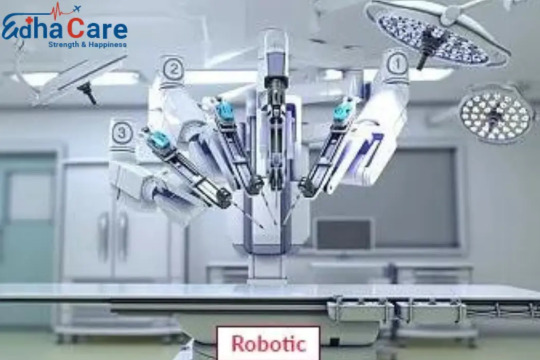
🫀 What is Robotic Heart Bypass Surgery?
Robotic Heart Bypass Surgery is a revolutionary, minimally invasive procedure used to treat Coronary Artery Disease (CAD). Unlike traditional open-heart surgeries that require splitting the breastbone, robotic procedures are done through tiny incisions using robotic arms controlled by a surgeon from a computer console. This modern approach ensures less pain, faster recovery, and minimal scarring.
👨⚕️ Who Needs Robotic Heart Bypass Surgery?
This procedure is ideal for:
Patients with blocked or narrowed coronary arteries.
Individuals who are elderly, diabetic, or obese.
Patients with single coronary artery blockages.
Those who are at low to medium surgical risk and seek faster recovery times.
Robotic surgery is especially beneficial for patients looking for less invasive options due to lifestyle or medical constraints.
🔍 Types of Robotic Heart Bypass Surgery
🔹 Totally Endoscopic Coronary Artery Bypass (TECAB)
Done through small incisions without opening the chest.
🔹 Robotic-Assisted Minimally Invasive Direct Coronary Artery Bypass (MIDCAB)
Uses robotic arms for a precise bypass via a small chest incision.
🔹 Hybrid Coronary Revascularization
A combination of robotic bypass and angioplasty with stenting, reducing complications and improving recovery.
🧪 Pre-Surgery Evaluation
Before the surgery, patients undergo comprehensive diagnostic tests:
🫀 Echocardiogram
💓 ECG
🏃 Stress Tests
📸 Coronary Angiography
These tests help the medical team assess:
The location of artery blockages.
Coexisting health conditions.
Patient suitability for robotic access.
A multidisciplinary team including cardiologists, cardiac surgeons, anesthesiologists, and radiologists collaborates to ensure the safest and most effective surgical plan.
🏥 Robotic Heart Bypass Surgery Procedure: Step-by-Step
🛌 Preoperative Preparation
General anesthesia is administered. Vital signs are monitored throughout.
✂️ Port Placement
Multiple small (1–2 cm) incisions are made for robotic tool access.
🤖 Robotic Setup
The surgeon operates robotic arms from a high-definition console for maximum precision.
👁️ Internal Visualization
A small endoscopic camera provides a magnified, 3D view of the heart.
🫁 Graft Harvesting
Internal mammary artery or saphenous vein is harvested as the bypass graft.
🪡 Conducting the Bypass
Graft is attached to bypass the blocked artery, often on a beating heart (off-pump surgery).
🩹 Closure & Recovery
Instruments are removed, incisions are closed, and the patient moves to recovery.
⚠️ Risks & Complications
Though rare, some potential risks include:
Infection or bleeding
Irregular heart rhythm
Blood clots
Heart attack
Equipment malfunction (rare)
Conversion to open-heart surgery in complicated cases
However, due to its minimally invasive nature, the risk level is significantly lower than traditional procedures.
⏳ Recovery & Long-Term Care
ICU stay for 24 to 48 hours post-surgery.
Hospital discharge typically within 3–5 days.
Walking is encouraged the next day to speed recovery.
Most patients return to normal life in 2 to 3 weeks.
Long-term care includes:
💊 Medications (anti-clotting, cholesterol control)
🥗 Heart-healthy diet
🧘 Stress management
🏃♂️ Cardiac rehab programs
🇮🇳 Why Choose India for Robotic Heart Bypass Surgery?
India stands at the forefront of robotic cardiac innovation. Here’s why patients across the globe trust India:
✅ World-class surgeons experienced in robotic techniques
✅ Advanced infrastructure with cutting-edge robotic systems
✅ Cost-effective treatments without compromising quality
✅ Proven milestones in robotic cardiac telesurgery
✅ Global patient support with multilingual coordination
💸 Cost of Robotic Heart Bypass Surgery in India
The Cost of Robotic Heart Bypass Surgery in India ranges from USD 8,000 to USD 15,000, a fraction of what it costs in the U.S. or Europe.
Patients benefit from:
Premium hospitals and robotic tech
Lower hospital stays
Inclusive post-operative care
Expert care at a globally competitive price
📈 Success Rate of Robotic Heart Bypass Surgery in India
India boasts a 95%+ success rate in robotic heart bypass procedures. Surgeons use SSI Mantra systems, enhancing safety and outcomes. With precise interventions and reduced complications, patients recover faster and enjoy better heart health.
🧡 Conclusion
Robotic Heart Bypass Surgery in India is redefining cardiac care with accuracy, speed, and affordability. As a minimally invasive, high-tech alternative to traditional surgery, it offers immense benefits for eligible patients. From state-of-the-art hospitals to internationally renowned surgeons, India is fast becoming a global leader in robotic cardiac treatments.
#RoboticHeartSurgery#HeartBypassIndia#MinimallyInvasiveSurgery#CardiacCareIndia#RoboticSurgeryIndia#EdhaCare#HeartHealth#BypassSurgery#MedicalTourismIndia#AffordableHeartCare#CoronaryArteryDisease#CardiacTreatmentIndia#HealthyHeart#HeartSurgerySuccess#RoboticBypassIndia
0 notes
Text
Aortic valve stenosis patient saved with sutureless robot-assisted surgery
KG Hospital performs India’s first robot-assisted sutureless aortic valve replacement surgery on a senior male patient suffering from aortic valve stenosis.
KG Hospital, Coimbatore informs to have performed what it claims to be India’s first sutureless robot-assisted aortic valve replacement surgery using da Vinci surgical robot. The procedure was carried out on a 74-year-old male patient diagnosed with aortic valve stenosis. Dr Arun Kumar, a cardiovascular and thoracic surgeon at KG Hospital led the surgery.
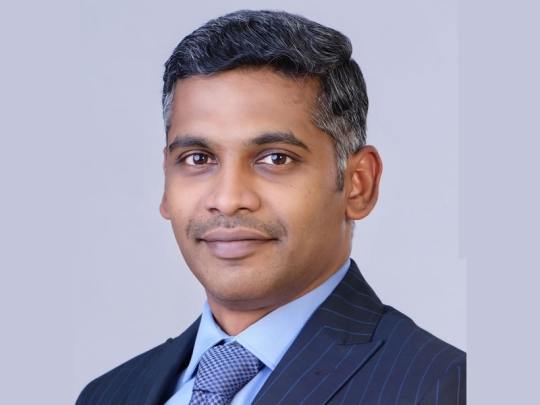
The patient, diagnosed with severe aortic valve stenosis two years prior, had symptoms including palpitations and exertion, progressing to breathlessness. This condition put him at high risk for cardiac surgery. Over 10 percent of individuals with heart conditions have bicuspid aortic valve, which then progresses to aortic valve stenosis at the age of 50 to 60.
Dr Arunkumar Ulaganathan said, “The valve helps blood flow to the rest of the body. The calcification reduced his heart’s working capacity. However, with the 3D dexterity and magnified imaging provided by da Vinci surgical system, we were able to safely place the valve into the aorta, without the risk of dislocation in the future.”
Robot-assisted procedures have several advantages including a high degree of precision, clarity with the imaging, minimized scarring and blood loss, fewer post-operative wound infections, and faster recovery.
#kghospital🏥#kghospitalcoimbatore#kgh#RoboticHeartSurgery#valvereplacement#heat#heartdisease#bestheartsurgeon♥️#roboticheartsurgeon
0 notes
Text
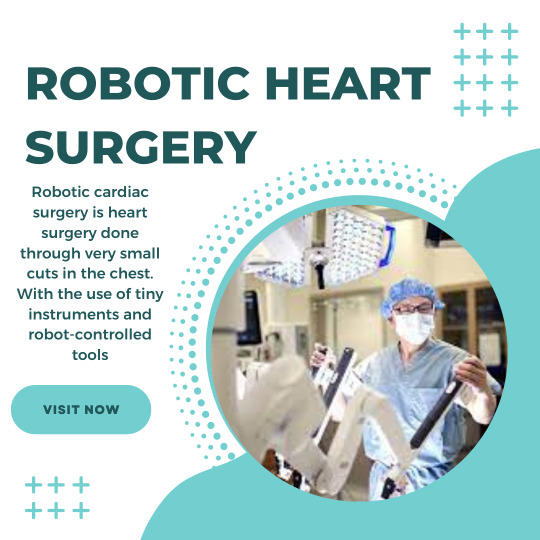
Robotic Heart Surgery
Micsheart Bangalore is known for Minimally Invasive Cardiac Surgery and we have now added Robotic Heart Surgery to our list of advanced procedures. Why should you choose us? Over 10 years of experience in Minimally Invasive Cardiac Surgery. We offer a superior outcome because we use the latest technology and have highly skilled surgeons on staff.
[email protected] +91 8197196622
The Heart Institute Apollo Hospital, Bannerghatta Road Bangalore, KA 560076
0 notes
Photo
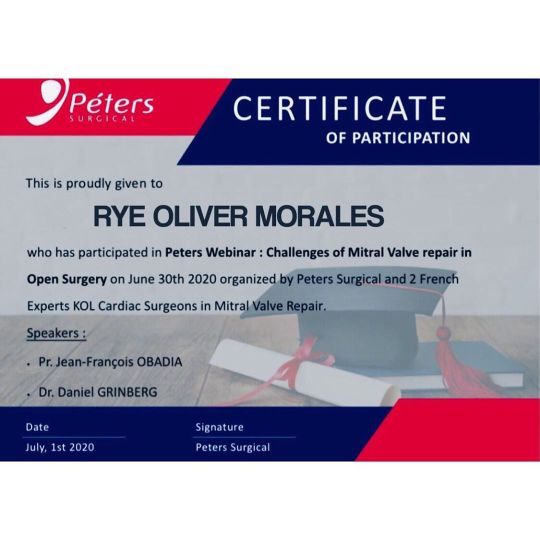
Mitral valve repair and mitral valve replacement are procedures that may be performed to treat diseases of the mitral valve, the valve located between the left heart chambers (left atrium and left ventricle). Several types of mitral valve disease exist. In mitral valve regurgitation, the flaps (leaflets) of the mitral valve don't close tightly, causing blood to leak backward into the left atrium. This commonly occurs due to valve leaflets bulging back a condition called mitral valve prolapse. In another condition, called mitral valve stenosis, the leaflets become thick or stiff, and they may fuse together. This results in a narrowed valve opening and reduced blood flow through the valve. Treatment for mitral valve disease depends on the severity of the condition. Surgeons may recommend surgery to repair or replace mitral valves for some people with mitral valve disease. Several surgical procedures exist to repair or replace mitral valves, including open-heart surgery or minimally invasive heart surgery. #PetersSurgical #MitralValveRepair #RoboticHeartSurgery #OpenHeartByPassSurgery ❤️ (at Surgery Ward) https://www.instagram.com/p/CCJtnLBnLCnsowc87A4-qD0dwjLMr6hifz4ctg0/?igshid=1r9i8twzbqmci
0 notes
Text
Affordable Robotic Heart Surgery with Top Surgeons in Best Hospitals India
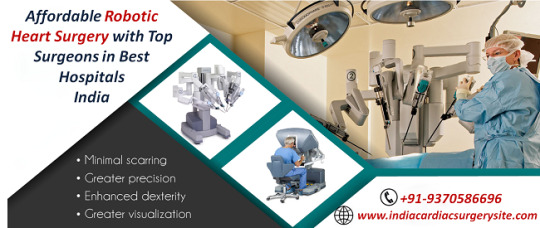
Robotic heart surgery requires propelled computer technology with the experience of skilled surgeons. India has a huge pool of profoundly talented, experienced and proficient cardiac surgeons. So the cost of robotic heart surgery in India is around $8000.
#RoboticcardiacSurgery#CostofRoboticcardiacSurgery#RoboticheartSurgery#BestSurgeonsIndia#bestHospitalsIndia#India
0 notes
Text
KG Hospital performs robotic-assisted Aortic Valve Replacement
KG Hospital, one of the leading multispecialty hospitals in Coimbatore, performed India’s first ever robotic-assisted suture-less aortic valve replacement surgery recently.
This robotic-assisted surgery (RAS) performed by using advanced Da Vinci technology on a 74-year-old male patient, who was diagnosed with Aortic Valve Stenosis, was led by Dr. Arun Kumar, a renowned cardiovascular and thoracic surgery at KG hospital.
The patient was diagnosed with severe aortic valve stenosis (thickening and narrowing of the valve between the Heart’s main pumping chambers) two years before the surgery, however as the symptoms progressed and heavy calcification (deposition of calcium) set in, he had to undergo this rare robotic-assisted surgery.
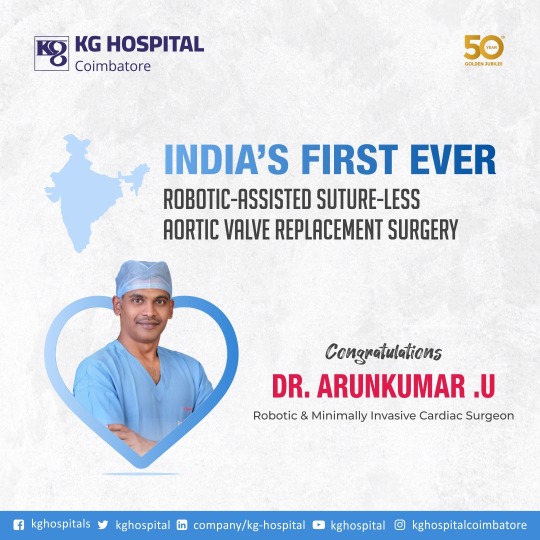
With Aortic Valve Stenosis, the patient’s working capacity had reduced to a point where exertion was causing routine palpitations. With the help of robotic-assisted surgery, the doctors were able to place a prosthetic valve with just guiding sutures.
Commenting on this complex case, Dr. Arun Kumar, Cardiovascular and Thoracic Surgeon at KG Hospital, Coimbatore said, “With the 3D dexterity and magnified imaging provided by da Vinci surgical system, we were able to safely place the valve into the aorta, without the risk of dislocation in future. One of the major risks for post-operative mortalities/ morbidities is the dislocation of the implanted valve. With robotics used, we had an additional layer of assurance and confidence that the valve was seated properly.”
“We are proud about performing this first-of-its-kind surgery, and we are delighted to have provided excellent patient care. We look forward to doing many such procedures in the future. Our aim at KG is to provide the best possible outcomes with the least amount of strain on the patient,” Dr. Arun Kumar added.
High degrees of precision, clarity with the imaging, minimized scarring and blood loss, fewer post-operative wound infections, and faster recovery are additional advantages that the robotic-assisted procedures have. Reducing the chance of infection makes it an ideal procedure for people with co-morbidities. Additionally, for robotic-assisted cardiac procedures, there is a lesser degree of rib-spreading required as compared to other forms of surgery. In many surgical procedures, robotic-assisted surgery is a less invasive method that enables patients to return to their regular lives considerably faster than open surgeries.
The RAS system allows surgeons to do procedures through a few tiny incisions. The system consists of small wrist-mounted equipment that can bend and rotate far more than a human hand, as well as a magnified 3D high-definition vision system.
About KG Hospital, Coimbatore:
With a vision to be one of the nation’s most affordable and advanced healthcare providers, KG Hospital has reached a significant milestone of 50 years, boasting 84 departments specialising in various medical disciplines. The hospital, a 500-bed facility, is also a Postgraduate Medical Institute offering the coveted DNB degree. KG Hospital has achieved over 4000 kidney transplantations, 26000 cardiac surgeries, and 1 Lakh brain surgeries. In addition to these achievements, KG Hospital has now opened its doors to new-age technologies like robotic-assisted surgery, enhancing the patient care they provide and their commitment to excellence in medical care.
#kghospital🏥#kghospitalcoimbatore#besthospitalincoimbatore#cardiaccare#health#roboticheartsurgery#roboticsurgeon#best cadiology#roboticheartsurgeon
0 notes
Text
Robotic Assisted Coronary Artery Bypass Grafting (CABG) Patient Story | KG Hospital Coimbatore
மேட்டுரை சார்ந்த திரு .ரமேஷ் பாபு அவர்களுக்கு இருதயத்தில் பிரச்சனை இருந்ததை தொடர்ந்து , கேஜி மருத்துவமனையில் மருத்துவமனையில் Dr. நித்தியன் (இருதய சிகிச்சை நிபுணர்) அவர்களை சந்தித்து தனக்கு இருக்கும் பிரச்சனை பற்றி எடுத்துரைத்தார், அவருக்கு Dr. நித்தியன் அவர்கள் ஆஞ்சியோகிராம் செய்து பார்த்ததில் இருதய இரத்தக்குழாயில் அடைப்பு இருந்தது தெரியவந்தது. சிறிதும் தாமதிக்காமல் Dr. அருண் குமார் ( நுண்துளை அறுவை சிகிச்சை நிபுணர்) அவர்களுக்கு பரிந்துரை செய்தார் . திரு .ரமேஷ் பாபு அவர்கள் Dr. அருண் குமார் அவர்கள் பைபாஸ் இருதய அறுவை சிகிச்சைப் பற்றி எடுத்துரைத்தார் , ஆனால் தனக்கு அறுவை சிகிச்சை செய்தால் தன்னால் வலி தாங்க இயலாது என்றும் தெரிவித்துள்ளார். எனவே Dr. அருண் குமார் , கேஜி மருத்துவமனையில் அறிமுகபடுத்தப்பட்டுள்ள ரோபோடிக் அறுவை சிகிச்சை பற்றியும் அதன் பயன்கள் பற்றி எடுத்துரைதுள்ளர், திரு .ரமேஷ் பாபு அறுவை சிகிச்சைக்கு உடனே ஒப்புக்கொண்டார்.
Dr. அருண் குமார் மற்றும் அவரது ரோபோடிக் மருத்துவ குழுவால் இருதய அறுவை சிகிச்சை வெற்றிகரமாக முடிக்கப்பட்டது. தற்பொழுது ரமேஷ் நலமுடன் உள்ளார். கேஜி மருத்துவமனையின் சிகிச்சை குறித்து திரு .ரமேஷ் பிரபு மற்றும் அவரது மனைவி கூறுகையில், தன் கணவரை உயிர் பிழைக்க வைத்த Dr. அருண்குமார் அவர்களுக்கு தனது நெஞ்சார்ந்த நன்றியை தெரிவித்துக் கொண்டு அவரை மனமார வாழ்த்தினர். மேலும் கேஜி மருத்துவமனையில் செவிலியர்களின் சேவை மிகவும் பாராட்டத்தக்கது, தன்னை ஒரு குழந்தை போல் பார்த்துகொண்டதாக மகிழ்ச்சியாக தனது நன்றியை தெரிவித்துக் கொண்டனர்.
#kghospital#kghospitalcoimbatore#testimonials#roboticheartsurgery#BestRoboticHeartSurgeryHospitalinCoimbatore#hearthospital#cardiaccare#patientstestimonial#patientstory#kghospital🏥
0 notes
Text
A Happy Testimonial from the Patient's Relative - Best Heart hospital in Coimbatore
சிதம்பரத்தை சார்ந்த திரு ராஜன் அவர்களுக்கு இருதய வலி ஏற்பட்டுள்ளது, இதனைத் தொடர்ந்து அங்கே ஒரு மருத்துவமனை அணுகி சிகிச்சை எடுத்ததில் ராஜனுக்கு ஹார்ட் அட்டாக் வந்ததாக அறிவித்தனர் எனவே சிறிதும் தாமதிக்காத உறவினர்கள் இருதய சிகிச்சைக்காக கோவை கே ஜி மருத்துவமனைக்கு அழைத்து வந்தனர், Dr.நித்தியன் அவர்களை சந்தித்து ஆஞ்சியோகிராம் பரிசோதனை செய்து பார்த்ததில் இருதய இரத்த குழாயில் மூன்று அடைப்புகள் இருப்பது தெரிய வந்தது எனவே சிறிதும் தாமதிக்காமல் Dr. அருண்குமார், நுண்துளை அறுவை சிகிச்சை நிபுணர் அவர்களை சந்திக்கும்படி அறிவுறுத்தினார்.
Dr. அருண்குமார் அவர்கள் திரு ராஜன் அவர்களுக்கு முக்கிய ரத்த குழாயில் அடைப்பு இருப்பதால் உடனடி இருதய அறுவை சிகிச்சை தேவை என்பதை குடும்பத்தாருக்கு தெரிவித்தார். ராஜனின் குடும்பத்தாரும் சம்மதித்தனர். எனவே Dr. அருண் குமார் மற்றும் அவரது மருத்துவ குழுவுடன் இருதய அறுவை சிகிச்சை வெற்றிகரமாக நடைபெற்று முடிந்தது.தற்பொழுது ராஜன் பூர்ண குணமடைந்து நலமுடன் உள்ளார்.
கே ஜி மருத்துவமனையின் சிகிச்சை குறித்து திரு ராஜன் அவர்களின் குடும்பத்தார் தெரிவிக்கையில், Dr. அருண்குமார் அவர்களின் சிகிச்சை முறையும், நோயாளிக��ிடம் பழகும் விதம் மிகவும் நல்ல முறையில் இருப்பதாகவும் தங்களுக்கு இருக்கும் அனைத்து சந்தேகங்களுக்கும் சிறிது முகம் சுளிக்காமல் பதில் அளிக்கிறார் என்று மகி��்ச்சியோடு தெரிவித்துக் கொண்டனர்.
மேலும் இருதய நோய் என்றால் பயப்படாமல் கே ஜி மருத்துவமனையில் வந்து சிகிச்சை பெற்றுக் கொள்ளலாம் என்றும் , கே ஜி மருத்துவமனையின் தலைவர் Dr. பக்தவச்சலம் அவர்களையும் வெகுவாக பாராட்டினார்.
#kghospital#kghospitalcoimbatore#feedback#testimonials#CABG#heartsurgery#cardio#cardiacsurgery#roboticheartsurgery#roboticsurgery#besthospitalincoimbatore#BestHearthospitalinCoimbatore
0 notes
Link
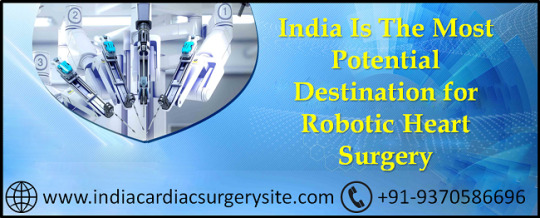
Robotic Heart Surgery is a type of surgery minimally invasive heart that is performed by a cardiac surgeon. The conventional open cardiac surgery involves a Sternotomy i.e. cutting through the sternum (breastbone) and opening the ribs. This, invasive technique causes more trauma; takes prolonged healing time and has increased risk for complications.
0 notes